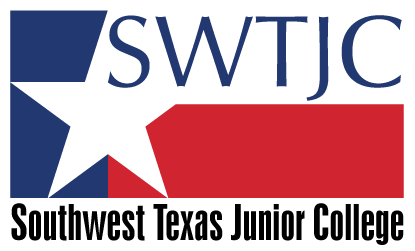3.7.4 Academic freedom
The institution ensures adequate procedures for safeguarding and protecting academic freedom.
JUDGMENT: ![]() Compliant
Compliant
STATEMENT OF RATIONALE FOR JUDGMENT OF COMPLIANCE
Southwest Texas Junior College (SWTJC) demonstrates a commitment to safeguarding and protecting academic freedom for all Faculty, whether Full-time, Adjunct, Dual Credit, or Distance Education, defining “academic freedom” in SWTJC policy EJA Local:
Institutions of higher education are conducted for the common good. The common good depends upon a free search for truth and its free expression.
It is essential that faculty members be able to pursue scholarly inquiry without undue restriction, and to voice and publish their beliefs concerning the significance of evidence that they consider relevant. They must be free from the corrosive fear that others, inside or outside the College District community, may threaten their professional career or the material benefits accruing from it because of differing views.
Faculty members are entitled to freedom in the classroom in discussing the disciplines that they teach. Faculty members are also a citizen of their nation, state, and community, and when they speak or write as such, must be free from institutional censorship or discipline.
The same policy speaks to academic responsibility with regard to faculty when it states:
The concept of academic freedom shall be accompanied by an equally demanding concept of responsibility, shared by governing boards, administrators, and faculty members.
The essential responsibilities of governing boards and administrators are set forth by the Southern Association of Colleges and Schools as updated and revised.
The fundamental responsibilities of faculty members include recognition that the public shall judge their profession and their institution by their statements. Therefore, they shall strive to be accurate, to exercise appropriate restraint, to show respect for the opinion of others, and to avoid creating the impression that they speak or act for the College District when they speak or act as a private person.
Instructors shall be judicious in the use of controversial material in the classroom and shall introduce such material only as it has clear relationship to their subject field.
Tenure at Southwest Texas Junior College is outlined in policy and detailed in the SWTJC Faculty Handbook. SWTJC Policy DCB (Local) provides the definition of tenure as an assurance of due process regarding possible dismissal:
Award of tenure provides assurance to experienced faculty members who perform in an excellent manner so that they may expect to continue in their positions unless adequate cause for dismissal is warranted in a fair hearing showing established procedures of due process.
Official SWTJC policies provide transparency regarding the tenure process, further ensuring the safeguarding of academic freedom at SWTJC. Policy DCB also specifies eligibility, evaluation, and award processes.
Policy DMB (Legal), based on Texas Education Code 51.960, outlines the grievance rights of faculty members. Policy DGBA outlines the grievance process for employees. The Legal portion of DGBA refers to federal, national, and local statutes regarding employee grievances. The DGBA Local portion of the policy details the grievance process including time limits for filing a grievance and the resulting response, levels of presentation (one to five), and provisions for exceptions to the general conditions of the grievance process.
Evidence
SWTJC Policy EJA Local Miscellaneous Instructional Policies Academic Freedom
SWTJC Policy DCB Local Employment Practices Tenure
SWTJC Policy DMB Legal Termination of Employment Tenure
Texas Education Code 51.960 Grievance Rights on Certain Personnel Issues
SWTJC Policy DGBA Legal Personnel-Management Relations Employee Grievances
SWTJC Policy DGBA Local Personnel-Management Relations Employee Grievances


